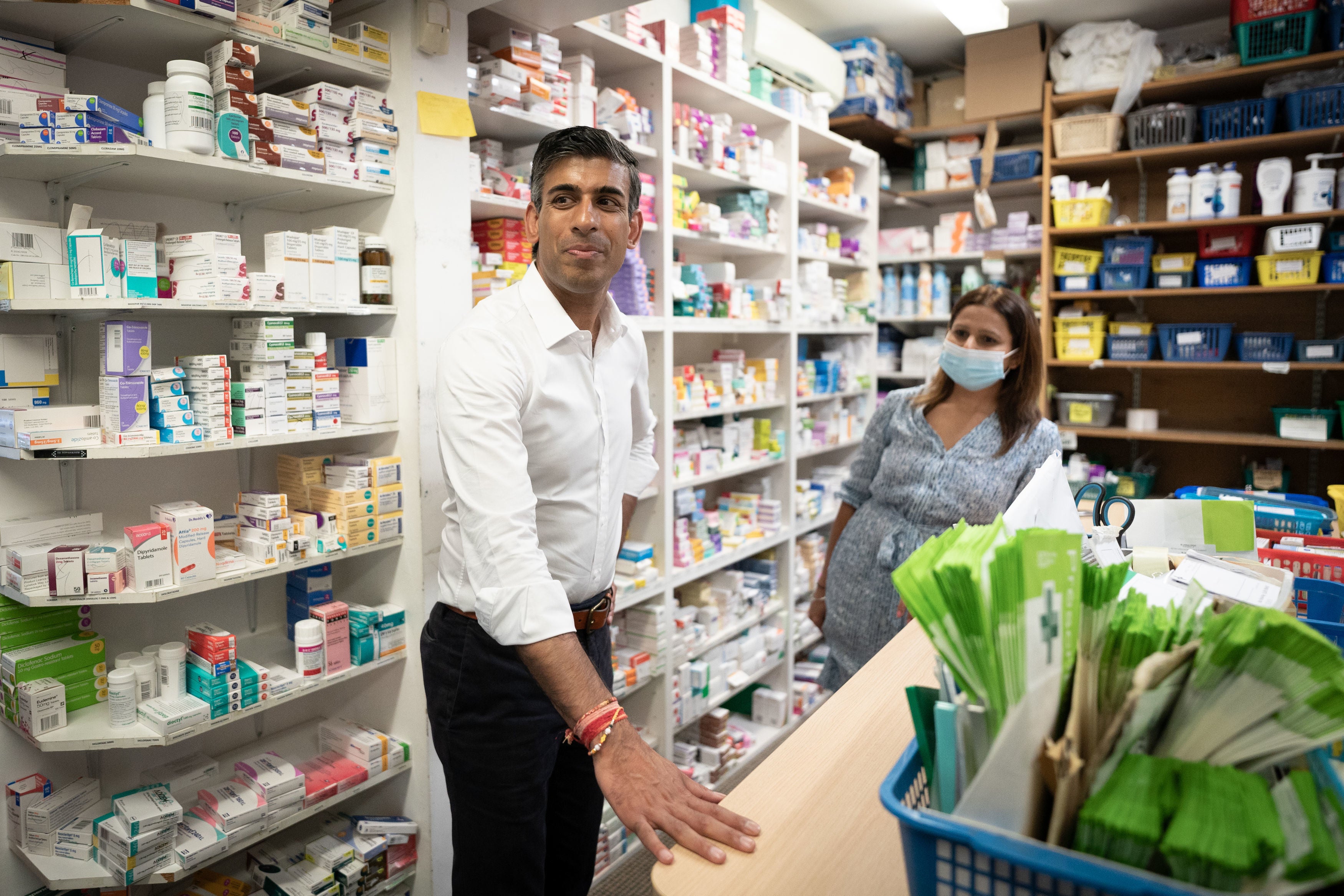Empowering Sage scientists over Covid lockdown left us ‘screwed’, claims Sunak
The Tory leadership contender said not enough consideration was given to the economic and social impacts of lockdowns.

Scientists on the Government’s Sage advisory committee were given too much influence over decisions on coronavirus lockdowns and not enough consideration was given to the social and economic impact, Rishi Sunak has claimed.
The former chancellor said he “wasn’t allowed to talk about the trade-off” during the early phases of the pandemic and suggested the Scientific Advisory Group for Emergencies edited its minutes to hide dissenting opinions.
Mr Sunak said “we shouldn’t have empowered the scientists in the way we did” and suggested he had been left “furious” during a meeting because colleagues refused to acknowledge the wider impact lockdown was having.
In an interview with The Spectator, the Tory leadership hopeful claimed he had often been a lone voice of resistance within the Government.
“We didn’t talk at all about missed (doctors’) appointments, or the backlog building in the NHS in a massive way. That was never part of it,” he said.
The meetings were “literally me around that table, just fighting”, which “was incredibly uncomfortable every single time”.
At one meeting he raised the impact on children’s education: “I was very emotional about it. I was like ‘Forget about the economy. Surely we can all agree that kids not being in school is a major nightmare’, or something like that.
“There was a big silence afterwards. It was the first time someone had said it. I was so furious.”
Setting out the problems he found with Government policy being influenced by outside academics, he said: “If you empower all these independent people, you’re screwed.”
He said that if the trade-offs had been acknowledged from the beginning, in March 2020 when the first lockdown was imposed, then different decisions could have been taken.
“We shouldn’t have empowered the scientists in the way we did,” he said.
“And you have to acknowledge trade-offs from the beginning. If we’d done all of that, we could be in a very different place.”
He suggested different decisions could have been reached on keeping schools open and the lockdown could have been shorter.
Mr Sunak suggested that minutes of Sage meetings, setting out the discussions on guidance for ministers, had omitted dissenting views.
He claimed the panel members did not realise there was a Treasury representative on their calls, feeding back to him.
He said she would tell him: “‘Well, actually, it turns out that lots of people disagreed with that conclusion’, or ‘Here are the reasons that they were not sure about it’. So at least I would be able to go into these meetings better armed.”
Boris Johnson’s former communications chief, Lee Cain, dismissed Mr Sunak’s assessment of the situation, saying he is “simply wrong”.
Mr Cain said: “It would have been morally irresponsible of the Government not to implement lockdown in spring 2020 – the failure to do so would have killed tens of thousands of people who survived Covid.
“In addition, without lockdown the NHS simply could not have survived and would have been overwhelmed.”
That would have resulted in an “even greater backlog” and more excess deaths from incidents such as missed cancer appointments, he suggested.
A No 10 spokesman said: “Throughout the pandemic, public health, education and the economy were central to the difficult decisions made on Covid restrictions to protect the British public from an unprecedented novel virus.
“At every point, ministers made collective decisions which considered a wide range of expert advice available at the time in order to protect public health.
“The UK Government spent over £400 billion to support people, families and their livelihoods throughout our response to the pandemic, which included the fastest lifesaving vaccine rollout in Europe.”
Bookmark popover
Removed from bookmarks